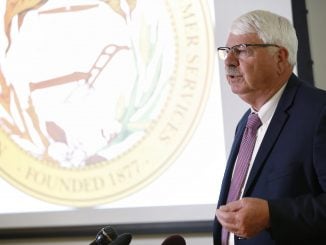RALEIGH — The North Carolina Department of Transportation (NCDOT) may see changes to the way it conducts internal spending audits and other oversight measures in the future.
The legislature’s Joint Legislative Program Evaluation Oversight Committee (JLPEOC) met earlier this month regarding the NCDOT’s overspending and oversight issues revealed over the course of the last year.
The JLPEOC reviewed a report published on Aug. 10 by the legislature’s Program Evaluation Division that overall found that the NCDOT and the Council of Internal Auditing had not complied with the Internal Audit Act. Highlights of the findings state that, “Despite its internal audit unit being the second largest among state agencies, the Department of Transportation (DOT) has not maintained a robust and viable internal audit effort.”
“The internal audit function performed by the DOT’s Office of Inspector General (DOT OIG) is ineffective, delivering work products that do not conform to standards required by state law,” the report states.
“Since 2016, DOT OIG has not produced a single performance audit, which is a type of audit that could have identified DOT overspending and cash flow problems that began to surface in 2018 and that the State Auditor confirmed in a 2020 report,” the report reads. “Instead, over 71% of DOT OIG’s work products in Fiscal Year 2018–19 were contractor overhead/cost review approvals of the type ordinarily performed by a controller’s office.”
The report continues, noting that the DOT OIG “did not conduct any financial, follow-up, information systems, or integrated audits in Fiscal Year 2018–19.” Additionally, the report blames failure by “DOT management, the State Board of Transportation, and the Council of Internal Auditing” to spot and correct the errors.
To rectify the issues found in the Program Evaluation Division’s report, a draft bill was discussed by the JLPEOC. The bill would direct the State Board of Transportation Audit Committee to include on a monthly basis the completed and pending reports from the NCDOT OIG annual audit plan, as well as any expected completion dates.
The bill would also have the Council of Internal Auditing help the NCDOT to improve the effectiveness of the DOT OIG internal audit functions. Additionally, the Council of Internal Audit would establish minimum performance standards for all state agency internal audit units as well as monitor for compliance with those standards.
Fiscal issues have plagued the NCDOT in the past year.
In Oct. 2019 it was announced that the NCDOT had $2 billion beyond the department’s designated revenue stream of $5 billion. The overspending resulted in the NCDOT almost running afoul of its statutorily required cash balance of between $282 million and $1 billion.
A May audit revealed the NCDOT had projected $5.94 billion in spending but overspent by around $724 million. When asked about the audit report during an oversight hearing, N.C. State Auditor Beth Wood said that the NCDOT appeared to be “making moves” to improve things, however, there was “no evidence” that the department tried to slow its spending.
By June, the NCDOT was forced to start rolling layoffs for leadership roles and general employees, due in part to budget shortfalls from overspending that were exacerbated by the lack of gas tax revenue receipts due to COVID-19 travel restrictions put in place by the governor.
A second audit in July hit the NCDOT with allegations of improper salary adjustments. The audit claimed the salary adjustments exceeded the pilot program’s “two-percent-of-payroll-expense limit” and resulted in $39 million in overspending as well as other problems with salary irregularities and longevity pay issues.


